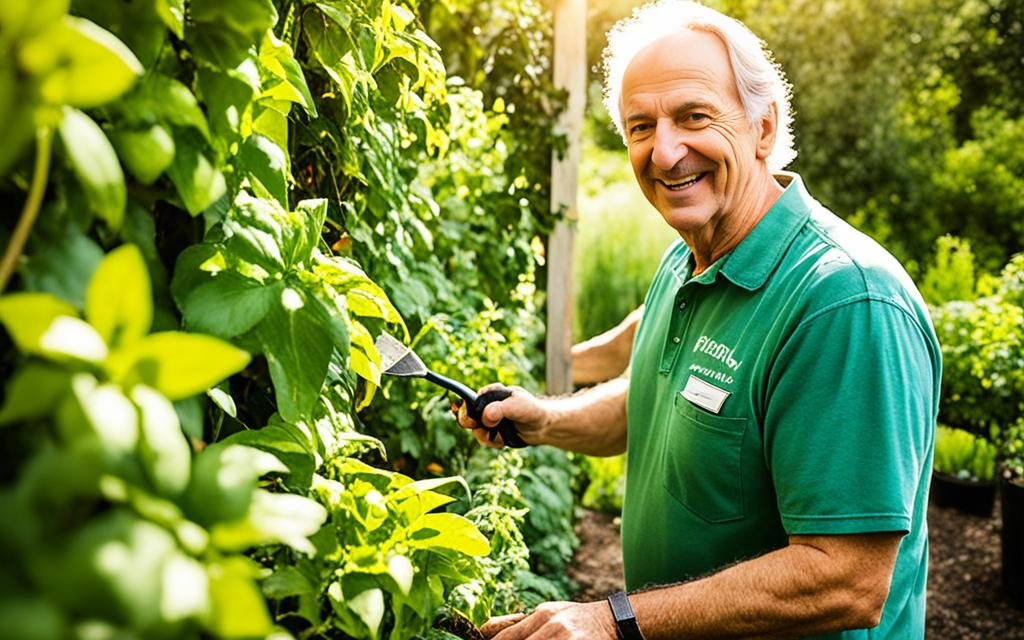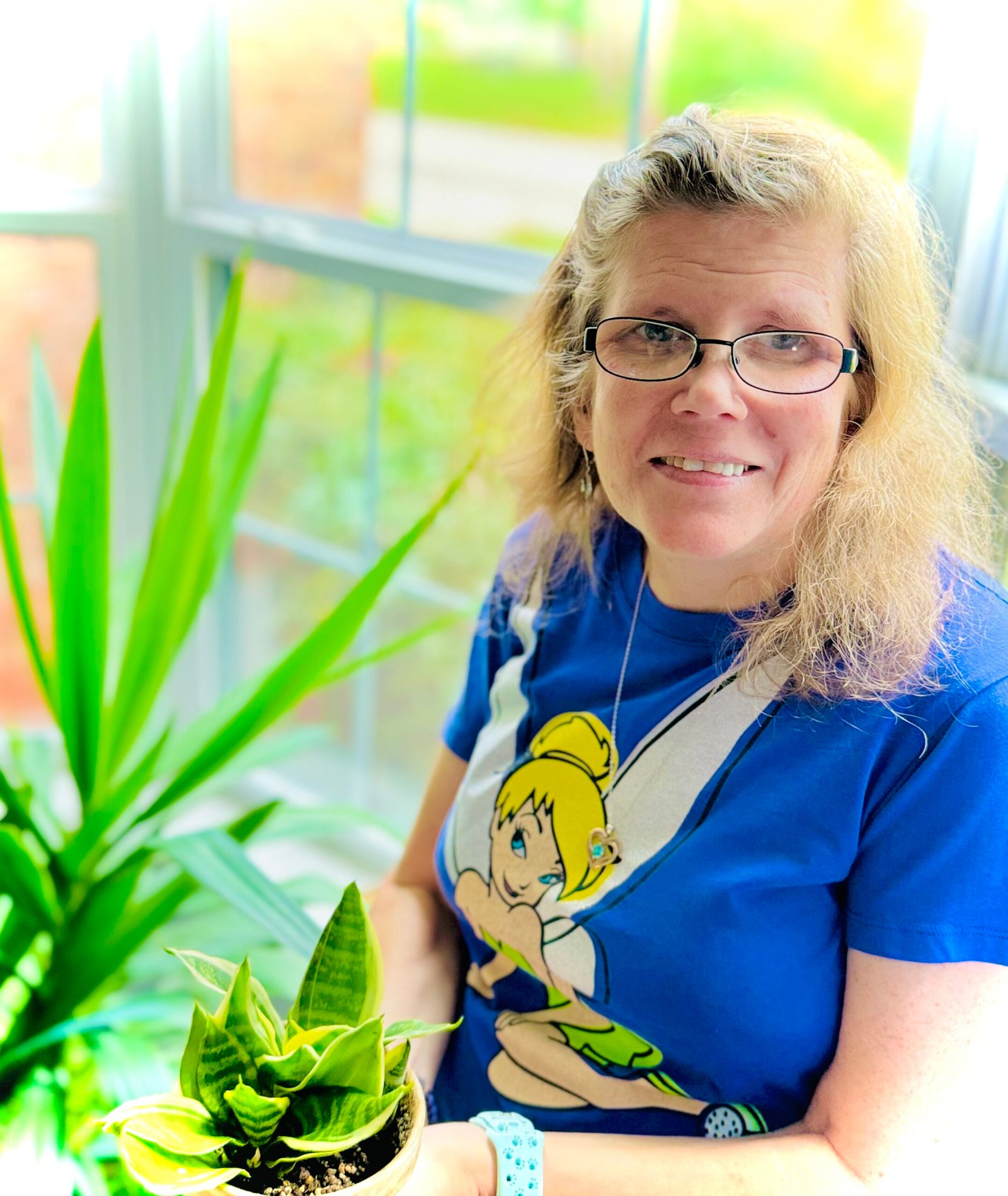Every seed I plant does more than grow a garden. It nurtures my soul. I find peace and strength in the earth and leaves. The 11 mental health benefits of gardening that I gain is deep, like the roots of my plants. It reflects the strong emotional benefits I’ve discovered. I now understand that gardening therapy isn’t just a passing fad. It’s a true healing method for the mind and spirit, backed by solid research.
Gardening is more than a hobby; it’s a powerful form of therapy. It combines physical work with emotional relief. Research shows gardening lowers stress hormone levels, helping me physically and emotionally1. In the sunlight, my garden and my wellbeing flourish together. The sun reduces blood pressure and cholesterol2. Surrounded by green, I feel connected to a broader community. We share our gardens and grow closer through them12.
- Stress reduction
- Improved mood
- Increased mindfulness
- Enhanced self-esteem
- Anxiety relief
- Social connection
- Cognitive stimulation
- Emotional resilience
- Improved sleep
- Sense of purpose
- Increased vitamin D
- Reading about gardening confirms my feelings; science supports my passion. Garden therapy’s benefits have been celebrated since the 19th century. It has helped many, including those with mental illnesses2. The history of garden therapy is filled with growth. It tells of healing from war, calmness for city kids, and new friendships in community gardens2.
Key Takeaways
- Gardening is a dynamic form of therapy that reduces stress hormones and enhances happiness1.
- Sunlight received while gardening can contribute to better physical health, which is intertwined with mental well-being2.
- Playing a part in the cycle of life by growing plants fosters a sense of belonging and boosts self-esteem1.
- Gardens offer peaceful refuges that can lower the risk of dementia and benefit cognitive functions1.
- Engaging with community gardening promotes socialization and builds strong networks of support2.
- Participation in programs like the Junior Master Gardener encourages healthy lifestyles from a young age1.
- Historically, gardening has provided therapeutic aid and continues to evolve as a recognized form of mental health support2.
Stress Reduction and Relaxation
In my garden, I let go of stress as I touch the peaceful soil. Gardening tasks, alongside the fresh air, help dissolve my stress. Through gardening, we see a full way to ease stress.
Nature as a Stress Reliever
Being outside and gardening is a great way to lower stress. It helps clear your mind and relax your body. Studies show that green spaces reduce stress all year3. During COVID-19, gardening was key in feeling connected to nature4.
Calming Influence of Working with Soil
Touching soil brings a calm feeling, much like meditation does. Being in nature helps us think clearly and feel less stressed. People who garden feel less stressed than those who exercise indoors3. Working with soil keeps our minds off worries and boosts well-being.
The Role of Cortisol Reduction in Gardeners
Activities such as digging and planting lower the stress hormone, cortisol5. Lower cortisol means feeling more relaxed. Gardening connects us physically and emotionally to nature, helping us escape stress.
| Benefit | Study Findings |
|---|---|
| Stress Reduction | Significant decrease in cortisol levels through regular gardening5 |
| Mental Clarity | Improved mental health measures in individuals with access to green spaces3 |
| Nature Connection | Increased value of gardening for stress relief during COVID-194 |
Gardening has many therapeutic benefits, making it more than just a hobby. It relaxes us, whether by touching soil or reducing cortisol. It’s a healthful activity that enriches our lives.

Enhancing Mood and Self-Esteem
Gardening does more than just grow plants. It changes my mood and how I feel about myself. When I garden, I see my garden and my mood get better. I let go of stress, feel proud, and get happier. These feelings are key for staying mentally healthy.
Boosting Serotonin Levels Through Sunlight and Activity
Sunlight is key for making serotonin, the ‘happiness hormone.’ Being in the sun while gardening raises my serotonin. This makes me feel happy and calm. Studies say outdoor activities like gardening boost serotonin and make our mental health better6.
- Sturdy and Stainless Steel Garden Set: Made of high-strength Stainless Steel, this stainless steel gardening tools is du…
- One for All Package: Grenebo garden tools set includes a total of 8 tools and 1 storage bag. Pruning Shears, Weedier, Tr…
- Ergonomic Handle Design: In order to realize a more comfortable and effortless user experience, the gardening tools were…

- 2-WHEEL MULTIPURPOSE CART: Designed for smooth transportation, featuring durable wheels that allow for effortless rollin…
- VERSATILE USE: Perfect for a wide range of tasks, ideal for transporting groceries from the car, moving laundry upstairs…
- DURABLE CONSTRUCTION: Constructed from heavy-duty resin plastic, this lawn cart is designed for long-lasting use; the ma…
The Satisfaction of Cultivating Life
Gardening brings a special kind of happiness. Seeing plants grow because of my care fills me with joy and pride. This activity connects gardening to feeling good and satisfied with life. I see the results of my hard work7.
Gardening’s Impact on Personal Achievement
Gardening means reaching goals, like growing plants from seeds. Every garden success boosts my confidence. Studies say gardeners often feel they’ve achieved more. They also have less stress and anxiety7.

Gardening with others makes the benefits even greater. It helps fight loneliness and builds a supportive group. Gardening isn’t just for me alone. It brings people together, improving our mood and connections8. Thus, gardening is more than a hobby. It’s a way to connect and feel better together.
Cognitive Benefits
When I started gardening, I quickly noticed my thinking skills got better. Many studies say gardening is great for our brains. They find it can improve our memory and make our minds more agile9. Some research even shows our brains can physically grow from gardening regularly9.
Planning what to plant and when to do it keeps our brains busy. It helps us solve problems better10. Remembering when to plant things also makes our memory stronger10. A study by Park, S-A. et al. (2019) tells us gardening can keep our minds sharp as we get older10.

Gardening connects us with nature, making us slow down and pay attention. It fights against the rush of everyday life. This boosts our focus and concentration9. My garden isn’t just for growing plants. It’s also making my brain work better, showing the many ways gardening can help our mental health.
Gardening helps our brains stay fit and delays aging-related memory loss. The variety of gardening tasks keeps our minds lively and engaged9. This active lifestyle helps keep our thinking skills sharp.
Gardening does more than just improve memory and solve problems. It also plays a big role in keeping our minds stable. Gardening is a key activity for all ages, promoting a healthier, happier life.
Encouraging Physical Activity
Gardening does more than fill time—it’s also a great way to get fit. This activity benefits mind and body alike. By working in the garden through tilling, planting, and weeding, we get healthier. It also improves our mental state. Let’s look at how gardening boosts body strength and supports our brain.
Physical Health as a Foundation for Mental Wellness
Gardening tasks like digging and pruning keep us strong, flexible, and enduring. Studies show regular movement decreases heart disease and stroke risk by up to 35%11. It can also lower our BMI. This leads to better physical health and, in turn, stronger mental health12. These points underline how physical well-being supports our emotional resilience.
Gardening as a Form of Exercise
Surprisingly, gardening is as strenuous as many sports. A half-hour in the garden burns calories similar to playing badminton or yoga11. This effort helps in keeping a healthy weight. It also makes our brain release endorphins, making us happier and less stressed11.
Link between Physical Work and Cognitive Function
The connection between physical work and mental sharpness is clear. Gardening keeps our brain engaged and reduces tiredness. It promotes being in the moment and keeps our thinking sharp as we grow older11. The physical effort in gardening keeps our mind active. It also helps us connect with others, which is crucial for staying mentally fit12.
| Benefit | Description |
|---|---|
| Stress Reduction | Gardening’s physical tasks decrease cortisol, the stress hormone12. |
| Mood Enhancement | Gardening under the sun boosts serotonin, improving mood and well-being11. |
| Cognitive Health | Gardening regularly keeps the mind alert and lowers the risk of cognitive decline11. |
| Physical Fitness | It works major muscle groups, enhancing overall physical health12. |
Gardening enriches our lives more than just through the plants we grow. It’s a way to express ourselves and gain physical health. This connection with the earth brings joy and a healthier lifestyle.
Fostering Social Interaction
Gardening does more than grow plants; it helps grow friendships too. Being part of a community garden makes people feel they belong13.They share not just the space but also experiences and problem-solving.
Being together in a garden improves our mental health and the community’s health. Studies show that besides making us physically healthy, gardening makes us happier and less isolated1413.
Gardening helps reduce stress and boost our mood. When we garden with others, our happiness grows. It leads to making friends, sharing gardening tips, and supporting each other14.
Gardening helps us fight loneliness, says the American Horticultural Therapy Association. It’s about physical health and connecting with others. Sharing gardening success and challenges strengthens our mental health.
In gardens, we find friendship and support. Research shows gardening increases happiness, community feeling, and mental health13. So, gardening is not only good for plants but also for our community and mental well-being.
Conclusion
Every evening, as the sun says goodbye, I look at my garden and feel thankful. Research combining results from 40 studies proves gardening boosts mental health significantly. This isn’t just a pastime; it’s a proven way to feel better, much like many British gardeners believe1516.
Gardening isn’t just about the pretty flowers or fresh veggies. Whether you’re digging (and burning 250 calories) or transplanting seedlings, you’re boosting your brain and body health16. Spending even 10 minutes daily in the garden strengthens your immune system. It’s all thanks to a special bacteria in the soil, Mycobacterium vaccae, and gardening’s ability to lower dementia and heart disease risk16.
I encourage you to start gardening and enjoy its many mental health benefits. Planting seeds is more than just good for the Earth or for getting fresh produce. It’s about building happiness and resilience in your life. Even though research varies, every blooming flower and leaf is proof of gardening’s healing power15. So, why wait? Add a bit of nature to your life and watch your well-being grow with your garden.

My name is Michelle Warren, and I’m the founder of Peaceful Gardening. As a 10-year breast cancer survivor, I’ve discovered the profound therapeutic power of gardening. This journey has not only helped me recover but has also become my passion and a source of ongoing peace and joy.
Peaceful Gardening was born from my desire to share the healing benefits of gardening with others. Whether you’re facing health challenges, dealing with stress, or simply looking to connect more deeply with nature, this space is for you.
Over the past decade, I’ve cultivated not just plants, but a deep understanding of how gardening can positively impact mental health. I’ve worked with local community gardens, led workshops on mindful gardening practices, and collaborated with mental health professionals to develop gardening-based stress reduction programs.
Peaceful Gardening was born from my desire to share the healing benefits of gardening with others. Whether you’re facing health challenges, dealing with stress, or simply looking to connect more deeply with nature, this space is for you.
Here, you’ll find evidence-based advice on using gardening as a tool for mindfulness, stress relief, and emotional healing. I share personal stories, practical tips, and scientifically-backed information on how to create your own therapeutic garden space, no matter the size of your yard or balcony.
My mission is to help you discover the joy, peace, and healing that comes from nurturing plants and connecting with nature. Join me in exploring how the simple act of tending to a garden can transform your mental and emotional wellbeing.
Welcome to Peaceful Gardening – let’s grow together towards better mental health!”



